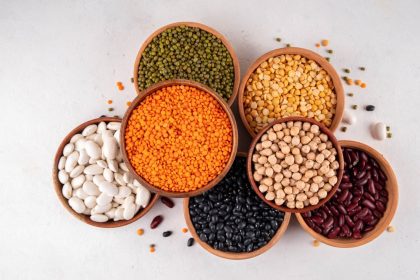In an era of fresh food fetishism, canned foods often languish in the shadows of produce aisles, unfairly maligned as nutritionally inferior alternatives. However, a closer examination reveals that these humble pantry staples pack a powerful nutritional punch, offering convenience without compromising health benefits.
The preservation paradox: How canning enhances nutrition
The canning process, a culinary innovation dating back to the Napoleonic era, has evolved into a sophisticated method of food preservation. Contrary to popular belief, this process often enhances rather than diminishes the nutritional value of foods.
Heat treatment: Nature’s nutritional amplifier
During canning, foods undergo heat treatment, which, counterintuitively, can increase the bioavailability of certain nutrients. For instance, the lycopene content in tomatoes becomes more accessible to the human body after canning, potentially boosting its cancer-fighting properties.
Sealing in goodness: The airtight advantage
The airtight environment created by canning prevents oxidation, a process that degrades nutrients over time. This hermetic seal acts as a time capsule, preserving vitamins and minerals at their peak freshness.
Nutrient stability: Defying the decay curve
While fresh produce begins losing nutrients immediately after harvest, canned foods maintain a stable nutritional profile throughout their shelf life. This stability ensures consistent nutritional value, regardless of seasonal availability or storage duration.
The canned food pantheon: Nutritional all-stars
Legume legends: Beans and beyond
Canned beans emerge as nutritional powerhouses, offering a trifecta of protein, fiber, and essential minerals. A single serving of canned black beans can provide up to 15% of the daily recommended iron intake, supporting optimal blood health.
Tomato triumph: Lycopene unleashed
Canned tomatoes boast higher levels of lycopene compared to their fresh counterparts. This potent antioxidant has been linked to reduced risks of certain cancers and improved cardiovascular health.
Fishy fortification: Omega-3 abundance
Canned fish, particularly salmon and sardines, offer a convenient and affordable source of omega-3 fatty acids. These essential fats play a crucial role in brain function and inflammation reduction.
Pumpkin power: Beta-carotene bonanza
Canned pumpkin puree is a concentrated source of beta-carotene, a precursor to vitamin A. This nutrient is essential for eye health, immune function, and skin integrity.
Fruit preservation: Antioxidants on demand
Canned fruits retain much of their antioxidant content, with some studies suggesting that certain canned fruits, like peaches, may have higher levels of antioxidants than their fresh equivalents due to the canning process.
Navigating the canned food landscape: Strategies for optimal selection
Sodium savvy: Balancing flavor and health
While sodium is often used as a preservative in canned foods, many manufacturers now offer low-sodium or no-salt-added options. Rinsing canned vegetables and beans can further reduce sodium content by up to 40%.
Sugar surveillance: Decoding sweetness
When selecting canned fruits, opt for varieties packed in water or their own juices rather than heavy syrups. This simple choice can significantly reduce added sugar intake without sacrificing flavor.
BPA awareness: Navigating packaging concerns
Concerns about bisphenol A (BPA) in can linings have led many manufacturers to adopt BPA-free alternatives. Look for labels indicating BPA-free packaging for added peace of mind.
The economics of nutrition: Canned foods as budget-friendly powerhouses
In an age of rising food costs, canned foods offer a cost-effective way to maintain a nutrient-rich diet. Their long shelf life reduces food waste, while their convenience can encourage more home-cooked meals, typically healthier than processed alternatives.
Culinary creativity: Elevating canned foods
Beyond the can: Transformative techniques
Canned foods serve as versatile ingredients in culinary creations. Roasting canned chickpeas transforms them into crunchy, nutrient-dense snacks. Blending canned pumpkin into smoothies adds a creamy texture and nutritional boost.
Global gastronomy: Canned foods in world cuisines
From Italian pasta sauces featuring canned tomatoes to Greek salads incorporating canned olives, cultures worldwide have integrated canned foods into their culinary traditions, showcasing their versatility and acceptance.
Sustainability considerations: The environmental impact of canning
Energy efficiency: A surprising eco-friendly option
The canning process, when done at scale, can be more energy-efficient than the transportation and storage of fresh produce. This efficiency translates to a potentially lower carbon footprint for certain canned goods.
Reducing food waste: Preservation as conservation
By extending the shelf life of foods, canning helps reduce food waste, a significant contributor to greenhouse gas emissions. This preservation method allows for the utilization of produce that might otherwise go to waste due to overproduction or imperfect appearance.
The future of canning: Innovations on the horizon
Smart packaging: Interactive nutrition information
Emerging technologies in packaging may soon allow consumers to access real-time nutritional information about canned foods through smartphone apps, enhancing transparency and informed decision-making.
Customized canning: Personalized nutrition
Advancements in food science may lead to canned foods tailored to specific nutritional needs, such as fortified options for individuals with particular deficiencies or health conditions.
As we continue to navigate the complex landscape of nutrition and food security, canned foods stand out as unsung heroes of the pantry. Their combination of nutritional value, convenience, and affordability makes them invaluable tools in promoting public health and sustainable eating habits.
By embracing the nutritional potential of canned foods and incorporating them thoughtfully into our diets, we can unlock a treasure trove of health benefits. From supporting heart health with lycopene-rich tomatoes to boosting protein intake with convenient canned beans, these pantry staples offer a pathway to improved nutrition that is accessible to all.
In the grand tapestry of a balanced diet, canned foods deserve recognition not as mere convenience items, but as nutritional powerhouses capable of supporting our health goals and culinary aspirations. As we move forward, let us approach the canned food aisle with newfound appreciation, recognizing the potential for health and flavor that lies within each sealed container.

















